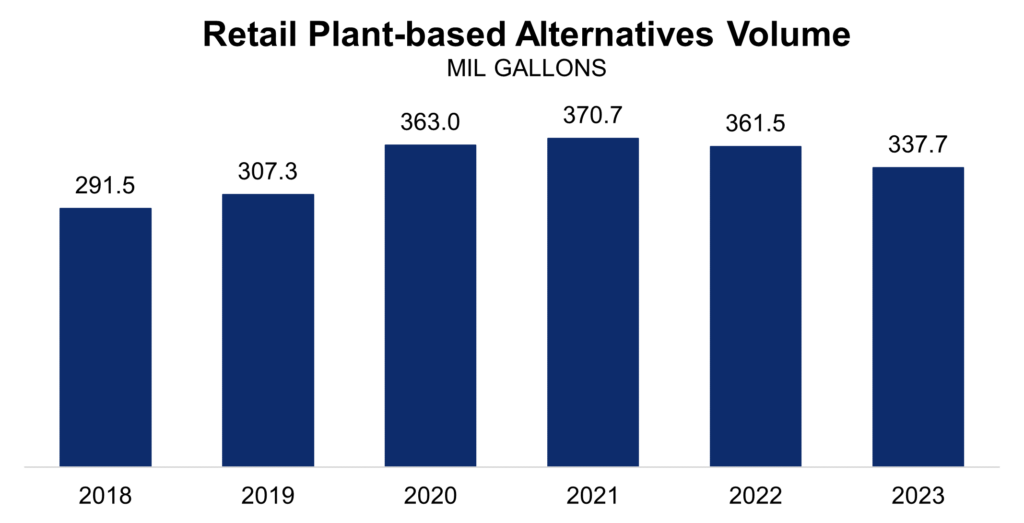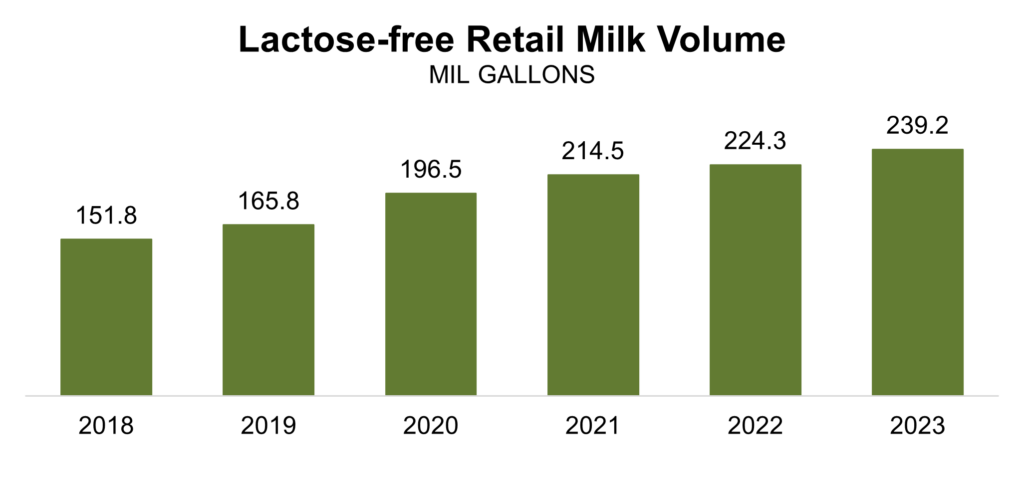“This is a list of ingredients from foods — carrageenan, riboflavin, monosodium glutamate and 20 others that I can’t pronounce.” – HHS Secretary Robert F. Kennedy Jr.
This column isn’t here to call out specific food ingredients — carrageenan, for example, has made many an ice cream pint hold together well, proving the value of the raw seaweed extract. But if the idea is to take a more critical look at food ingredients that sound more like science experiments gone bad than healthy, nutritious products, we might just offer one helpful hint: Take a look at the plant-based “dairy” substitutes section and see what you find.
It takes a lot of substances to turn a slurry of chemicals, emollients, emulsifiers, additives and colorings — plus few almonds, oats, etc. — into something that looks like a dairy product. Things like, “mixed tocopherols.” Or “gellan gum,” (which, admittedly, is used in ice cream if you want it to stay stable when placed in flaming alcohol). Or “calcium disodium edta,” (which is also good at treating lead poisoning), among others.
Again, not casting aspersions on anything, just noting that your grandmother probably didn’t talk much about these ingredients over Thanksgiving dinner. Meanwhile, milk is made of… milk, with some vitamin fortification that dates back nearly a century. Cheese is made of… milk, with some additives that follow processes developed over generations. And other dairy products are made of… milk, with whatever else helps keep it safe and stable for consumers who are, in the end, experiencing the same nutrition and wholeness their forebears would have recognized in earlier, less pronunciation-challenged times.
This revelation isn’t anything new: In fact, Dairy Defined did a whole quiz on this theme in 2022 that’s still fun to complete. But it bears repeating as food policy gets a new look. Plant-based products or products derived from the fermentation of a fungus that are engineered to superficially resemble dairy are, by definition, imitations or (poor) substitutes of something that was already out there, already serving a public that understood what it did and what was in it. But in this case, the imposters want to call their product the same thing as the real thing, implying equivalencies in nutrition that just aren’t there and creating confusion in the marketplace.
And that needs to stop.
The last three FDA commissioners, serving both Republicans and Democrats, all recognized the problem — all that’s left is action. Regardless of one’s feelings about specific ingredients or the values they bring to specific foods, being transparent about what something is and what it isn’t, is an important principle from which to build.
Truth in labeling. Not hard to say. And long past time to do.



 Milk and dairy products supply 13 essential nutrients, including three that continue to be identified as nutrients of public health concern: calcium, potassium, and vitamin D.
Milk and dairy products supply 13 essential nutrients, including three that continue to be identified as nutrients of public health concern: calcium, potassium, and vitamin D.





